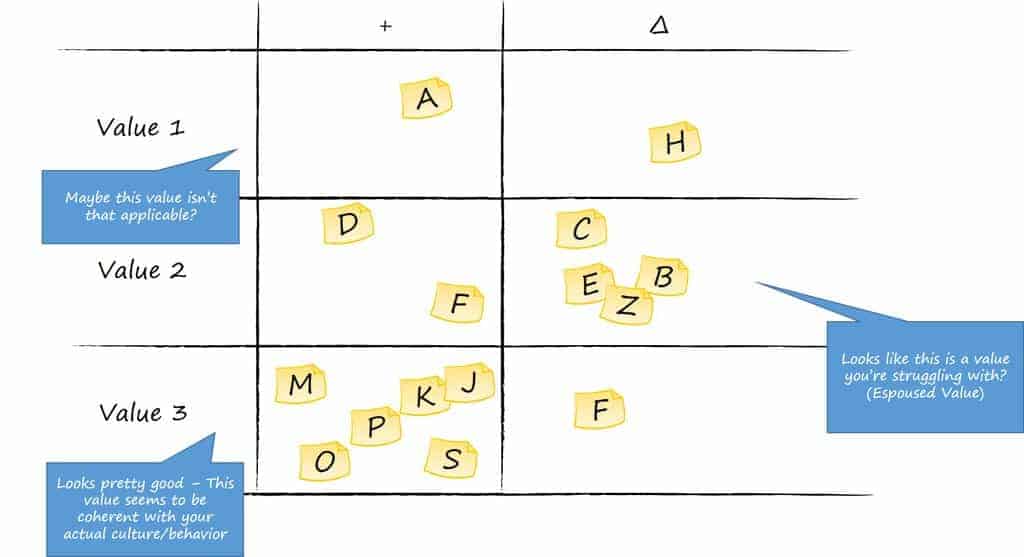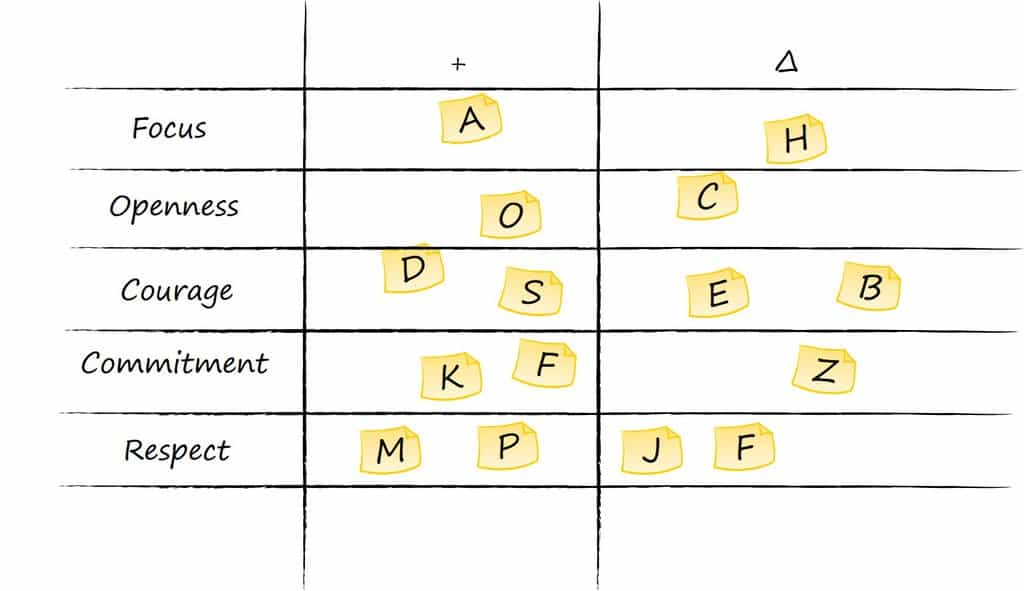Bringing values down to earth
Values and principles can often seem lofty and intangible so many agile practitioners prefer to focus on tools and practices. That's understandable but unfortunate. Because values and principles have the potential to provide us with clarity and guidance that transcends what practices and frameworks can achieve. Ideally - part of your empiric inspection and adaptation process should explore whether you are living according to your values/principles. To achieve that you can try a value-based retrospective.
Values-based Retrospective - The TL;DR (Too long; Didn't Read) version:
Create a matrix of your values as rows, and some classic retro categories such as plus/delta as columns. Then run a "generate insights" activity in which you try to see what you're doing that upholds a value or flies in the face of it and could be improved. Afterwards continue the retrospective as usual by deciding what to focus on, getting to the root cause, coming up with experiments and committing to some change.
The Value of a Values-based Retrospective
This can help in a couple of ways:
- Refresh the team's recollection and understanding of the values/principles and their importance
- Help you identify espoused values that you need to work on a bit (or a lot...)
- Celebrate some values that are coherent with your actual behavior.
- Identify impediments that are blocking you from behaving in a way that's aligned with your espoused values.
Choosing Values to Focus On
One question you should probably be asking is "What values should I use?"
- Your organizational/team values (assuming those are ones you feel are real and relevant - not just posters on the wall...)
- Values of the agile approach you're using - e.g. Scrum Values or the values from the Manifesto for Agile Software Development
- Values from a management approach you like - e.g. Daniel Pink's Intrinsic Motivation- in this case, your values will be Autonomy, Mastery, and Purpose.
Regardless of what set of values you choose - make sure you understand the value of each value. E.g. how does the Scrum value "Courage" benefit you as a team? Why is it required in order to achieve high-performance? This can be a warm-up activity of the retrospective - each person trying to lay out his perspective on this and then sharing notes.
Improve Collaboratively Using Models
You could also use this retrospective style to bring in sets of values as models to look at while trying to improve. What I mean by that is you could run a retrospective using a certain set of values even if they're not formally your values. For example, Even if you're not doing Scrum, running a retrospective using the Scrum Values would be educational, would probably inspire some interesting discussions, and drive some useful experiments.
In summary - running a values-based retrospective can be a great way to run a different style of retrospectives - one that is one hand focusing on the roots of what we're trying to do and on the other hand grounded in our actual behaviors and what to do about them.


